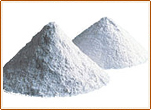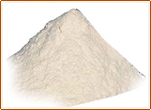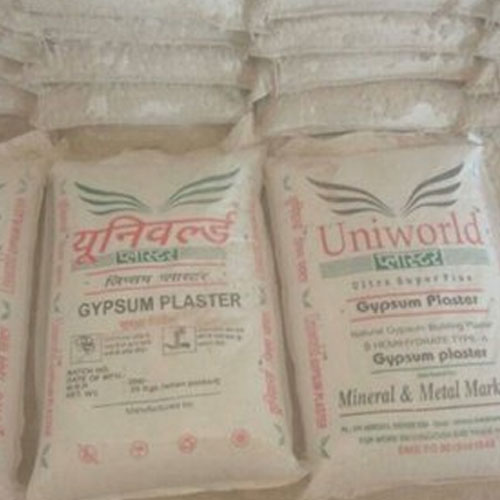Plaster of Paris and Cement Fiber Plaster or simply
plaster, is a type of building material based on calcium sulfate
hemihydrate, nominally (CaSO4)2.H2O. It is created by heating gypsum to
about 150°C. When the dry plaster powder is mixed with water, it
re-forms into gypsum, initially as a paste but eventually hardening into a
solid. The structure consists of sheets of Ca2+ and SO42- ions held together
by hydrogen bonds in the water molecules. The grip between these sheets is
easily broken, so plaster is fairly soft. Plaster is used as a building
material similar to mortar or cement. Like those materials plaster starts as
a dry powder that is mixed with water to form a paste, which then hardens.
Unlike those materials, plaster remains quite soft after drying, and can be
easily manipulated with metal tools or even sandpaper.
Features of Balajee Plaster of Paris :
- It is manufactured by using high grade natural mineral gypsum &
highly abrasive & inert material blended together
- Natural oven backed highly abrasive SIO2 is used for high purity
- Due to presence of highly abrasive material, water absorption is low
- Surface & development strength is high & hence resistance
high..
- Water required during mixing is less. No patch mark can be observed
once it is set and dry.
- Specially formulated ready mix reinforced gypsum plaster, for regular
and flash bricks applications provide excellent bonding, for any type of
smooth and rigid background directly.
- Density of the material is high, as compared to regular gypsum
plaster
- Smooth surface is achieved and hence the paint consumption is less.
- Specially formulated and designed plaster is produced for specific
requirement to give unmatched finish and brightness to the surface.

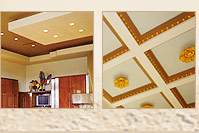
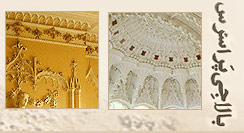

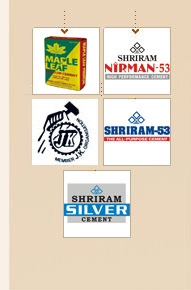
 Product
Range
Product
Range 